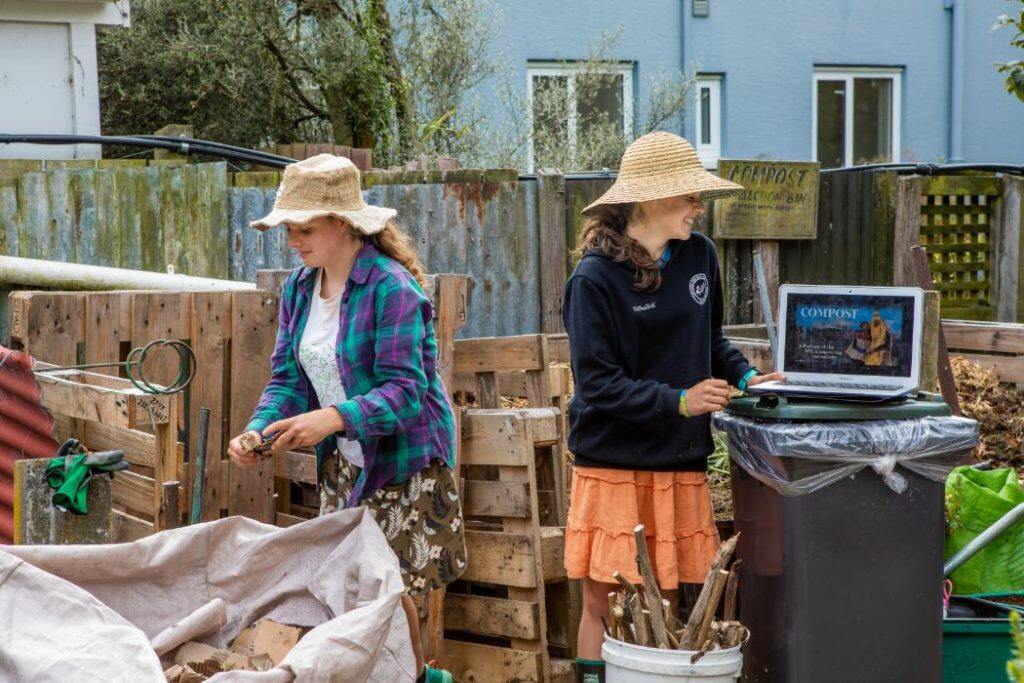All those dead leaves are perfect for all composting systems, including systems that don’t require much space, or even a garden.


“Composting is a big deal because we send far too much rubbish to the landfill,” Jess says. “About 30% of waste being sent there is organic waste, which means it could be composted!”
The latest climate change report, from the Intergovernmental Panel on Climate Change, spells out the dangers of further warming the planet by emitting carbon and other gases, such as methane. It’s not just our well-publicised cows who produce methane, but potentially every single one of us as well.
“In the landfill, food scraps produce methane gas, which is in fact 23 times worse than carbon dioxide as a greenhouse gas,” Kaitlyn says. “Composting is a way in which we can minimize the waste we produce, therefore decreasing the impact we have on our one beautiful earth.”
“We can all make compost,” Jess adds. “It is just a mixture of organic materials such as food scraps, brown leaves, paper, grass clippings… the list goes on! And from this, we can make dark, crumbly compost, which brings life back into the soil and feeds our plants.”
The two young women manage to fit a lot into their days. Both are studying first year Environmental Science; Kaitlyn is majoring in Environmental Contamination and Jess is majoring in Ecosystem Health & Biosecurity. They volunteer at the University’s Waiutuutu Community Garden, with the Student Volunteer Army and with activities coordinated by UC Sustainability Office.
Jess and Kaitlyn came to UC from Rotorua, where they were the leaders of Forest & Bird Youth Rotorua and their school enviro club, and volunteered with organisations including Kai Rotorua, Lux Organics and the Whakarewarewa Pest Control. Kaitlyn was also selected for the 2021 Bayer Youth Ag Summit, (one of 100 participants globally and the only New Zealander) with her plan to establish an urban farm every 1km in urban Aotearoa to improve sustainable food production.
“It is a great solution to the climate crisis and to increase food security, as it improves access to fresh fruit and vegetables and cuts out the need for fossil fuels,” she says. “Urban farms also have an important community aspect, where workshops are run in order to connect consumers to their kai, as well as teaching them how to grow it and how to compost.”



































